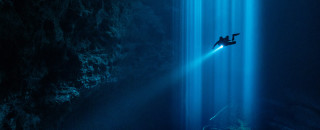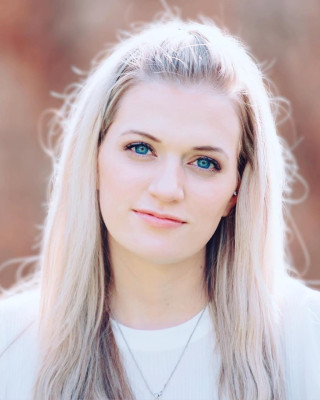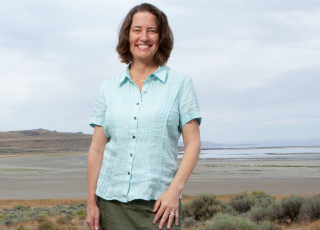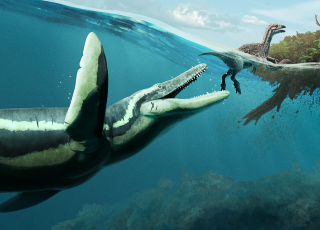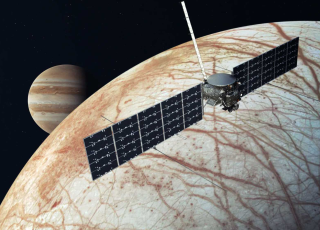Diving Into Darkness With Courage and Curiosity
This article was published in advance of Jill Heinerth's April 22 lecture at Kingsbury Hall, which is part of the Museum's 2025 Lecture Series. Tickets can be purchased here, through the Kingsbury Hall online box office.
By Olivia Barney
Humans are born with an inherent curiosity, an instinctual desire to explore and understand the world we live in. That curiosity has often led to discoveries and creations that take our breath away: the award-winning films you can’t stop thinking about, the medical advances that save lives each day, and even the out-of-this-world search for life on other planets.
We hear about it all the time: young, ambitious kids who grow up to follow their dreams and change the world. We make films about these people. We buy their memoirs. We attend their lectures hoping to gain even a small portion of their ambition and fearlessness.
But what if fear is their secret to success?
Somewhere along the journey from an imaginative childhood to the more practical lifestyle of adulthood, most of us learn to be afraid. We second-guess ourselves, make the safe decisions, and repeat cliched warnings to other ambitious minds: “You know, curiosity killed the cat.”
For explorer, writer, and seemingly fearless adventurer, Jill Heinerth, this couldn’t be further from the truth. Curiosity doesn’t kill the cat. Instead, it drives every discovery. Persistence through failure and fear precedes every success.
From a Volunteer to a Legendary Explorer
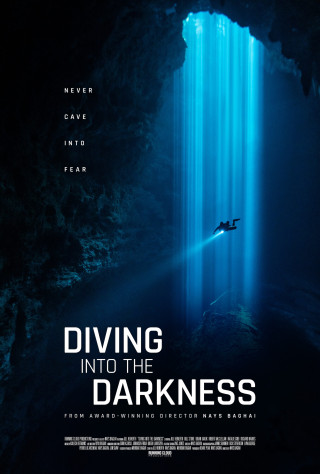
Running Cloud Productions
Heinerth is an accomplished adventurer, communicator, and science enthusiast. She’s been to places that few others can claim — more people have walked on the Moon than been to the remote underwater worlds that she’s explored right here on Earth. She’s written novels, collaborated with PBS, National Geographic, and the BBC, and is the subject of a brand-new documentary, “Diving Into Darkness” — a breath-taking odyssey of Heinerth’s diving adventures. (The documentary will be available for streaming soon. For updates on the film’s development and release, please click here.)
Despite her worldwide success, she describes herself simply as a citizen scientist: a normal person who is curious about the world and finds ways to get involved.
“As a kid, I was so interested in science, and I spent so much time at the Royal Ontario Museum near where I grew up, just exploring and learning. And yet, I didn't want to specialize in something or go into one field of scientific study,” Heinerth said. “There is such an urgent need for citizen scientists. We only have so many specialist scientists, who are often stifled a bit by the time frame that traditional science pathways take (like the research, writing, peer review, and publication process). And then sometimes their work lands behind a pay wall. But citizen scientists can greatly accelerate that whole experience by contributing to data gathering and observations in any sort of science, from astronomy to saving sea turtles. There are many places where people can volunteer, plug themselves in, and play a really important part of science communication to their friends and families.”
Heinerth speaks from personal experience — citing her experience as a volunteer as the catalyst that launched her career as a passionate, professional adventurer.
And adventure she does.
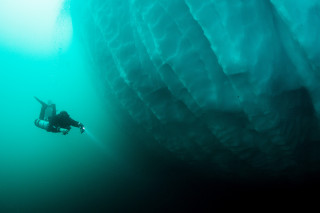
Heinerth has done more than dive into precarious and hard to navigate cave systems. She’s also come face-to-face with bull sharks and polar bears, trekked the unforgiving landscapes of Antarctica, and led the first-ever cave diving expedition to take place inside an iceberg — a frozen, fresh-water behemoth the size of Jamaica.
Though her actions may seem fearless to some and risky to others, Heinerth never allows herself to become complacent, recognizing that every dive, even those she’s done before, is dangerous. The risks are real, and Heinerth is the first person to validate the fear that comes with each adventure into the unknown. Consequently, she’s often asked how she confronts the claustrophobia of tight, unexplored places, or the darkness of the deep, open water.
“It’s healthy to be afraid. What I want people to know is that I am afraid. I apply safety protocols and set myself up for success. And I'm still afraid,” Heinerth said. “But in order to have new discoveries, we need to employ that explorer’s mindset and be willing to step into the darkness.”
“The fear is telling you that it's worth it,” she continued. “You're about to learn something new for yourself, or maybe something new for humanity, and you just have to take those careful, slow steps, and let your eyes adjust to the light as you step into that darkness.”
Meet the Legend in Person
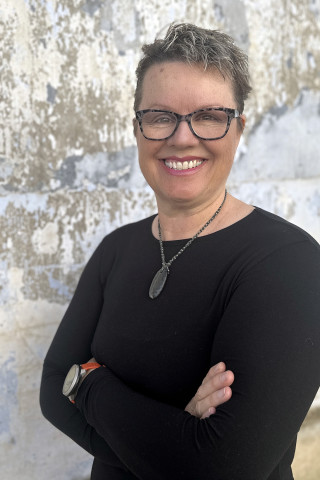
Heinerth will be sharing her harrowing tales of adventure, passion for underwater ecosystems, and best advice for diving into the metaphorical darkness of our own lives during her lecture at Kingsbury Hall on Tuesday, April 22, 2025. As the keynote speaker for NHMU’s 2025 Lecture Series: Planet Water, she’ll reignite your imagination, inspire deep, personal reflection, and pass along the adventurer’s mindset she’s become so famous for.
Directly following the lecture, Heinerth will be answering audience questions and signing books, a limited number of which will be available for purchase at the venue.
Don’t miss this opportunity to meet one of the most extraordinary adventurers of our time — reserve your seats now. Tickets for this event are sold through Kingsbury Hall's online box office. Follow the link below to be redirected to their page.
